African American Political Leaders in Cincinnati throughout history
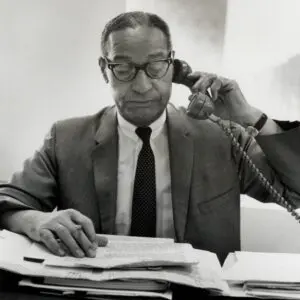
There are many African American Political Leaders in the History of Cincinnati that you may need to be made aware of. Did you know that in 1938 Theodore “Ted” Berry was appointed the first Black American Assistant Prosecutor in Hamilton County? He also served as the President of the Cincinnati National Association for the Advancement of Colored People (NAACP) from 1932 to 1946.
On September 24, 1948, he was one of the founders of the Urban League of Greater Cincinnati, which began as one of the city’s Community Chest Agencies.
During WW II, Berry worked as a morale officer in the Office of War Information. This job took him to Washington, D.C. At the same time, he changed his political affiliation from the Republican Party to the Democratic Party. In 1947, Berry began his Cincinnati political career when he ran for City Council. He lost that year but won in 1949.
While on the Council, he chaired the Finance Committee and helped make many changes in the city. In 1955, he was elected as Vice Mayor. Several decades later, in 1972, he became Cincinnati’s first African American Mayor.
Examples of several other influential Cincinnati African American political leaders
John Mercer Langston (1829 – 1897)
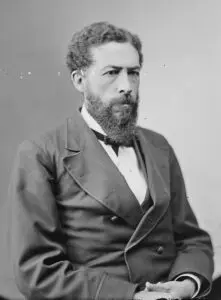
John Mercer Langston was born in Louisa County, Virginia on December 14, 1829. His father, Ralph Quarles, was a wealthy white man, and his mother, Lucy Langston, was an emancipated former enslaved African American.
Both of Langston’s parents died from various illnesses in 1834. As a result, young Langston lived with one of his father’s friends, William Gooch, in Chillicothe, Ohio. In 1838, Gooch moved to Missouri. Fearing that he might lose his inheritance if he accompanied Gooch, Langston remained in Ohio, settling in Cincinnati, where he attended Gilmore High School.
In 1843, he enrolled in Oberlin College’s Preparatory Department. The Preparatory Department was the equivalent of a high school. Langston eventually enrolled in the college program at Oberlin, graduating in 1849. In 1854, he passed the bar to become Ohio’s first African American attorney making him one of the significant African American Political Leaders of his time. During these years, Langston was also an active Underground Railroad memberUnderground Railroad in Cincinnati and other nearby parts of Ohio.
Peter H. Clark (1829 – 1925)
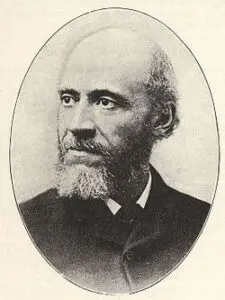
Peter H. Clark was born in 1829 in Cincinnati, Ohio, the son of Michael Clark, a barber, and his wife (name unknown). Peter was the product of mixed racial ancestry that formed the basis for a lifelong struggle to find a place for himself in both the white and African American worlds.
The oral tradition of Peter Clark’s family and the Cincinnati African American community contends that Michael Clark was the explorer William Clark’s son. This Kentucky slave-owner had children by his biracial enslaved African American named Betty. Major Clark is said to have freed Betty and their children and settled them in Cincinnati. There she married and started another family with John Isom Gaines an affluent black man who owned a steamboat provisioning business.
Related Article: Learn more about Peter H. Clark.
Several decades later, in 1866, Clark became principal of the segregated high school, Gaines High School, named after his uncle. This was when he had his most significant impact on Cincinnati. For instance, he not only served as principal but also trained numerous African Americans to become teachers.
From a political party affiliation, Clark first became a member of the Republican Party, a member of the Liberal Republican Party and then in 1876 joined the Workingmen’s Party, a socialist organization. Clark became their candidate for state school commissioner in 1877 and 1878 as representative of the first congressional district making him one of the significant African American Political Leaders of his time.
George Washington Williams (1849 – 1891)
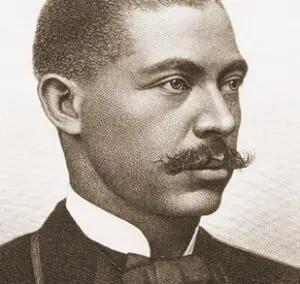
George Washington Williams was born on October 16, 1849, in Bedford Springs, Pennsylvania. At fourteen years of age, he enlisted in the Union Army during the American Civil War. After the war, Williams moved to Mexico, where he fought beside the Mexican populace to remove Emperor Maximilian from power.
By 1867, Williams had returned to the United States of America, where he enlisted in the United States Army. In 1868, Williams was wounded in a battle with Native Americans in the western part of the United States. However, before his injuries, Williams received an honorable discharge.
Related Article: Learn more about George Washington Williams.
Upon leaving the military, Williams enrolled at Howard University and eventually in the Newton Theological Institution, where he was ordained as a baptist minister. He found employment in numerous churches, but he eventually moved to Cincinnati, Ohio, where he studied law. In 1876, he became the Pastor of the Union Baptist Church in the “Queen City.”
Subsequently, he served in the Ohio General Assembly from 1880 to 1881, becoming the first African American elected to the Ohio legislature, representing the African American population of Hamilton, County, Ohio and adding him to the list of significant African American Political Leaders of his time.
Leslie I. Gaines (1945 – 2014)
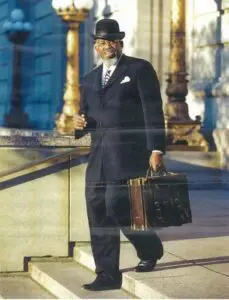
Leslie I. Gaines, born in 1945, with a flamboyant, booming baritone-voiced, who as a lawyer and Judge, wore a black derby wearing, larger-than-life man (who at times, at 6 foot 4 inches, weighed 250 to 300 pounds) was one of the most influential African American civil rights leaders and community activists in Cincinnati, Ohio (also known as the “Queen City”) from the 1970s the early 2000s.
Gaines’ passion for social justice and legal fairness, especially in the city’s many courtrooms, both as a fiery defense attorney and a witty Hamilton County Municipal Court Judge, enabled him to gain a powerful reputation having one of the best legal minds of his era in the region. He also was a champion for the thousands of less fortunate African American citizens who lived in the area.
Related Article: Learn more about Theodore M. Berry.
In 1973 Gaines helped to establish the Black Lawyers of Cincinnati Association, which took on both little-known and high-profile cases for individuals who could not afford to pay the regular fee commanded by most lawyers in the city and county. He released a gospel album in 1983 titled “The Lord Don’t Know Nothing about Unemployment Because He’s Working Overtime” and a blues album in 1991 titled “America Kicked Butt Blues.”
In 1993, Gaines’ outstanding legal mind and dedication to eliminating unfair treatment in all forms within the legal profession and activism for the city’s minority population helped to lead to his appointment as a Hamilton County Judge by Ohio Governor George Voinovich.
Several years later, Gaines decided and subsequently dedicated his life to traveling the region and the country as an evangelist as well as performed on numerous occasions as a powerful motivational speaker. Despite these various accomplishments, very few people are aware of his influential impact on improving race relations and advocating for social justice in Cincinnati.
Dwight Tillery (1948 –)
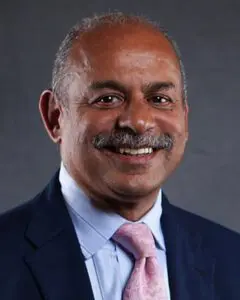
Dwight Tillery, born in 1948, grew up in the city’s West End and attended the University of Cincinnati in the 1960s. He helped found the university’s United Black Association and graduated with a degree in political science in 1970.
In 1972, Tillery obtained a law degree from the University of Michigan. He was the Vice-Chair Cincinnati Human Rights Commission from 1975 to 1980 and a Cincinnati Board Health member from 1976 to 1980.
Related Article: The History of African Americans in Cincinnati
Under the “top-vote-getting” system used in the city, Tillery became mayor in 1991, thus becoming the second African American mayor elected in Cincinnati’s history. Dwight served as mayor from 1991 to 1993. He briefly ran for the Democratic nomination for Congress in 1992 before dropping out of the race to focus on his mayoral duties. He was a member of Cincinnati’s City Council until 1998 when term limits forced his retirement.
In 2004 Tillery founded the nonprofit organization “The Center for Closing the Health Gap in Greater Cincinnati” organization and thus became very actively engage local hospitals, social advocates, and health care leaders to combat higher rates of obesity, diabetes, heart disease, HIV and cancer occurring in vulnerable populations. Tillery, at the age of 70, retired as CEO of the organization on December 31, 2018.
Alicia Reece (1971 –)
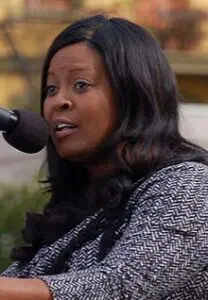
Born in 1971 to Dr. Steven Reece, who was the Chief-of-Staff for former Cincinnati Mayor Theodore “Ted” Berry, the first African American mayor of Cincinnati, and Barbara Reece, a successful local entrepreneur, Alicia Reece graduated from Withrow High School and University in 1989.
During her time there, she served as Senior Class President, Captain of the women’s City Champions basketball team, and graduated in the top ten percent of her class. Reece also graduated from Grambling State University with a bachelor’s degree in Mass Communications and served as “Miss Grambling State University.”
Related Article: Why so many African Americans have roots in the West End of Cincinnati
In 1999 Reece became the youngest woman in history elected to Cincinnati City Council in 28. Several years later, she was re-elected to City Council as one of the youngest African American female Vice Mayors in the country.
In 2002, Reece was recognized at the state and national level as one of the youngest females and African American to make the shortlist for consideration as Ohio Lieutenant Governor for the Democratic Party. This same year she was given the highest honor for a female elected official in the Ohio Democratic Party by receiving the 2002 Gertrude W. Donahey Award. Currently serving as a Hamilton County Commissioner, Reece has made history as the first African American woman to hold city, county, state offices from Cincinnati, Ohio.
Mark Mallory (1962 –)
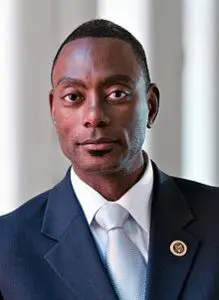
Mark Mallory was born in 1962 and raised in West End, Cincinnati, by his father, a former public-school teacher and Ohio State Representative William Mallory, and his mother, Fannie. He holds a Bachelor of Science degree in Administrative Management from the University of Cincinnati.
Mayor Mallory began his public service career as a book page at the Public Library of Cincinnati and Hamilton County. He worked there for 14 years in various positions, rising to Manager of Graphic Production and Assistant to the head of public relations. Mark attended high school at the city’s Academy of Math and Science and earned a Bachelor’s in Administrative Management from the University of Cincinnati in 1984.
Related Article: OTR Cincinnati and the recurring history of racial tensions and economic divide.
Mallory was sworn in as the 68th Mayor of Cincinnati on December 1, 2005. He was re-elected in 2009. His election marked a new era for City Hall as the first two-term Mayor under the City’s new Stronger-Mayor system, the first directly elected black Mayor, and the first Mayor in over 70 years to not come from City Council. During his tenure as Mayor, Mallory led the city through one of the toughest economic periods.
He regularly balanced the city’s budget, while any significant layoffs to police officers and firefighters or substantial reductions in the city’s services. Under Mallory’s leadership, the City of Cincinnati also moved forward with several significant developments and attracting new business investments, such as the Banks project and new investments in the Over-the-Rhine community.
Yvette Simpson (1978 -)
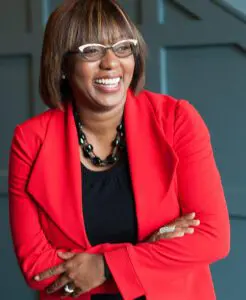
Born in 1978, Yvette Simpson grew up in Lincoln Heights and raised by her grandmother in a local public housing project. After graduating from Princeton High School, Simpson attended Miami University and subsequently graduated and became the first person in her family to obtain a college degree.
In 2004 received a law degree from the University of Cincinnati. In 2005, Simpson was recognized as one of the Cincinnati Business Courier’s Forty under 40 and a YWCA Rising Star.
Related Article: Stories of the Underground Railroad in Cincinnati
In 2011 she was elected to Cincinnati’s City Council, where she served as the Chair of the Human Services, Youth, and Arts committee and the on the Budget & Finance, Law and Public Safety, Neighborhoods and Major Transportation and Regional Cooperation committees.
In 2014, she received her MBA from Xavier University. This same year she was the recipient of the Greater Cincinnati YWCA’s Career Women of Achievement Award. In 2017 Simpson ran an unsuccessful Mayor campaign in Cincinnati against incumbent Mayor Cranley.
Several years later, in 2019, she became chief executive of “Democracy for America,” a national progressive grassroots organizing group founded by former presidential Democratic Party candidate Howard Dean. This same Simpson became a political news contributor for ABC News.
Selected Bibliography
Cheek, William and Amiee Lee Cheek. “Culture and Kinship: John Mercer Langston in Cincinnati: 1840-1843.” Queen City Heritage 47, 1 (1989): 2 – 22. Franklin,
John Hope. George Washington Williams: A Biography Durham: Duke University Press, 1998.
Gaines, Leslie I. How to Die and Live to Tell About It. Cincinnati: Junkman Series Books, 2001.
Leavy, Walter (March 1992). “New Black Mayors Take Charge”. Ebony, 106–110.
Ruffin Moore, Gina. Cincinnati. Black America Series. Charleston, SC: Arcadia Publishing, 2007.
Taylor, Nikki M. Frontiers of Freedom: Cincinnati’s Black Community, 1802 to 1868 Athens: Ohio University Press, 2005.
Taylor, Nikki M. America’s First Black Socialist: The Radical Life of Peter H. Clark. Lexington: University Press of Kentucky, 2013.
Further Readings
https://pbr.ohio.gov/wps/portal/gov/spbr/about-us/board-members/2dwight-tillery
https://www.hamiltoncountyohio.gov/government/departments/commissioners/commissioner_reece
http://www.ohiostatehouse.org/museum/george-washington-williams-room/mark-mallory
https://yvettesimpson.com/meet-yvette/
About the author, Eric R. Jackson
Eric R. Jackson holds a doctorate from the University of Cincinnati. He is a professor of history and black studies in the Department of History and Geography at Northern Kentucky University, where he teaches courses in American and African American history/studies, race relations, and peace studies.
He has over 50 publications, including articles in such journals as Africology: The Journal of Pan African Studies, Journal of African American History, and Journal of World Peace.
[email protected]
859-572-5816
The Voice of Black Cincinnati is a media company designed to educate, recognize, and create opportunities for African Americans. Want to find local news, events, job posting, scholarships, and a database of local Black-owned businesses? Visit our homepage, explore other articles, subscribe to our newsletter, like our Facebook page, join our Facebook group, and text VOBC to 513-270-3880.
African American Political Leaders images provided by the City of Cincinnati, University of Cincinnati, Wikipedia, yvettesimpson.com, pbr.ohio.gov, @judgegaines on Twitter, Ohio Statehouse,
Comments are closed.